Find Help
More Items From Ergsy search
-
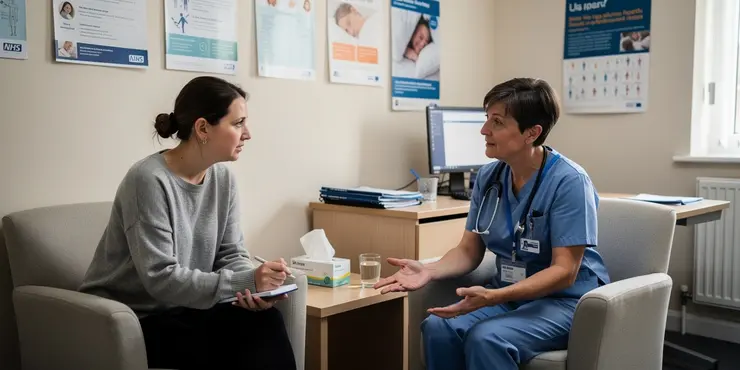
BSL - Insomnia self-help tips
Relevance: 100%
-
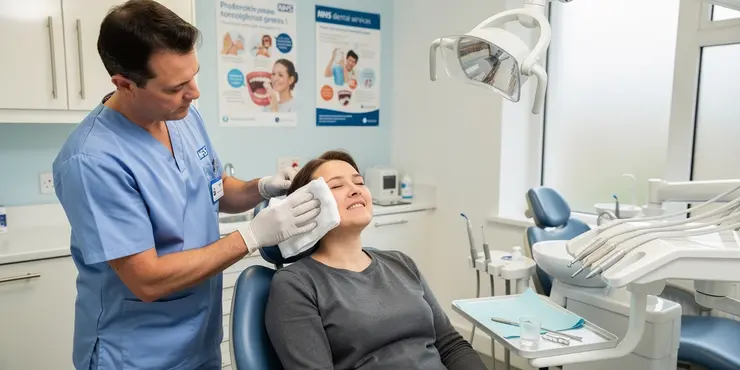
NHS 24 | Self-help tips for dental pain
Relevance: 51%
-

BSL - Treatments for insomnia
Relevance: 51%
-
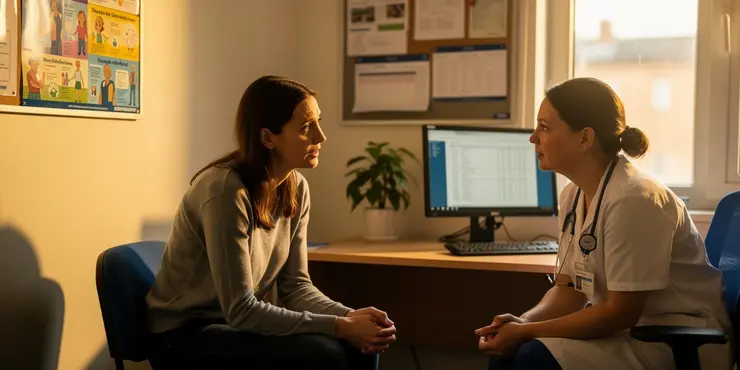
BSL - Causes of insomnia
Relevance: 47%
-
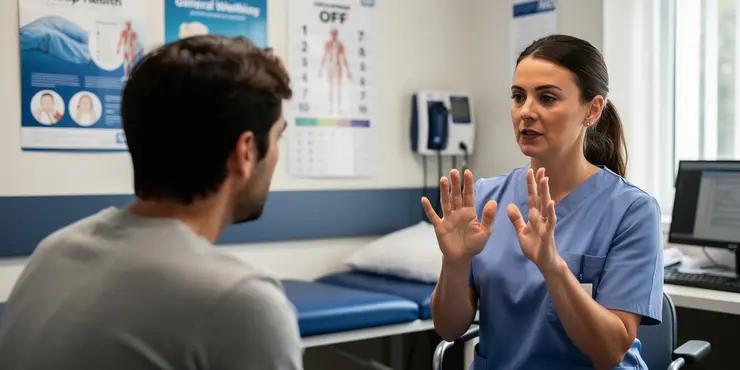
BSL - Insomnia introduction
Relevance: 45%
-
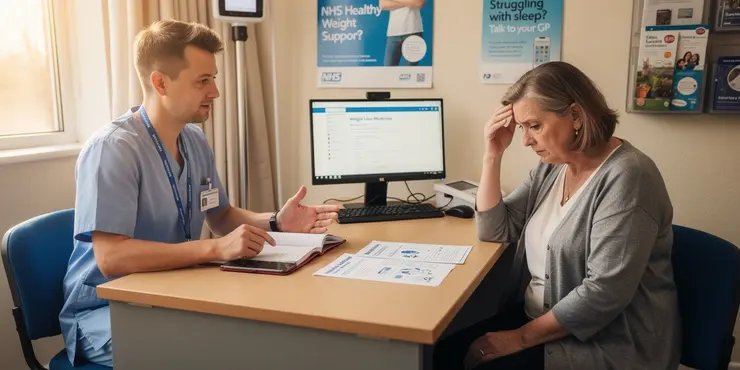
Is insomnia a common side effect of weight loss drugs?
Relevance: 39%
-
Are there self-help strategies for managing health-related anxiety?
Relevance: 38%
-

Post-traumatic stress disorder (PTSD) - Self-help guide
Relevance: 36%
-
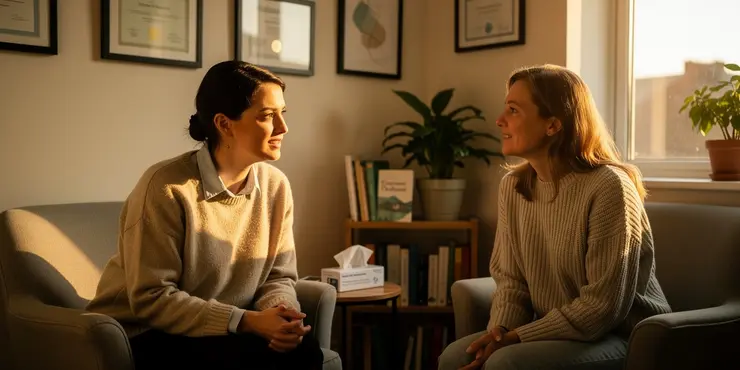
Talking therapy 'should be offered before pills' for people with insomnia | NHS Behind the Headlines
Relevance: 34%
-

Top 10 Tips for Healthy Eating
Relevance: 26%
-
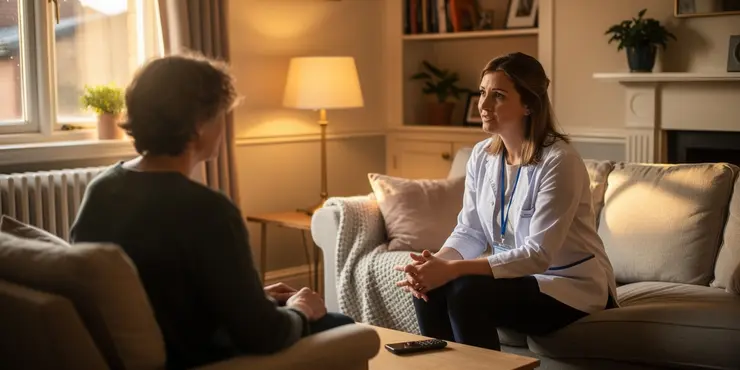
Top Tips to Help You Get a Good Nights Sleep
Relevance: 26%
-
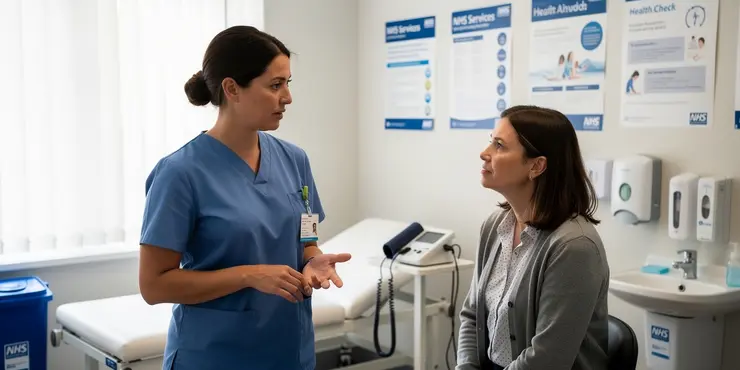
Prolapse Types and Tips
Relevance: 26%
-
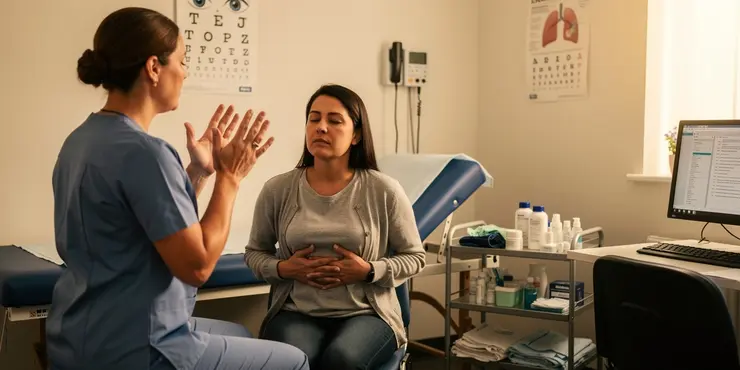
Tips for breathlessness | NHS
Relevance: 25%
-
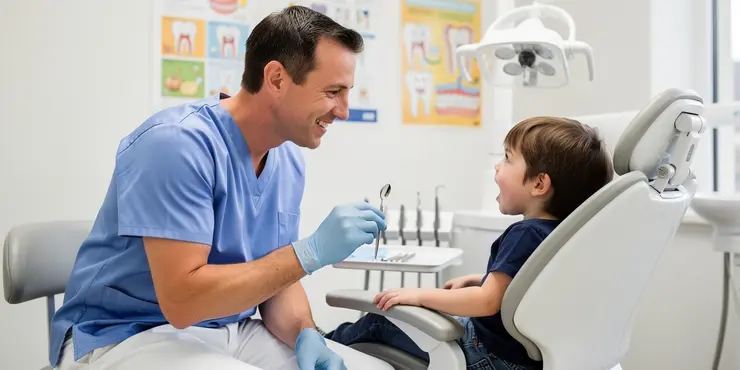
Dental Health: Tips for All Ages
Relevance: 24%
-

Healthy Family Lifestyle Tips Post-Pandemic
Relevance: 23%
-
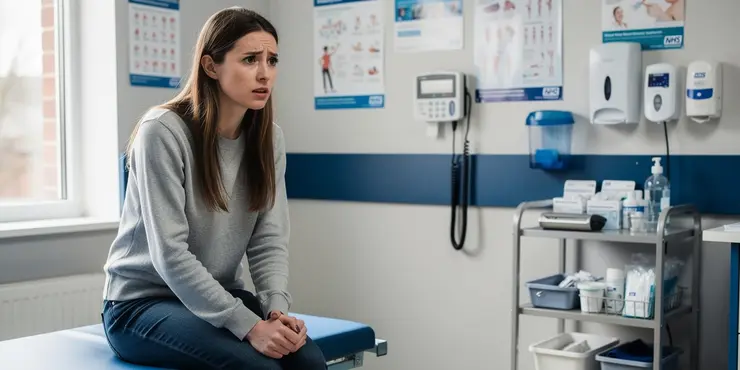
Needle phobia - Top tips video
Relevance: 23%
-
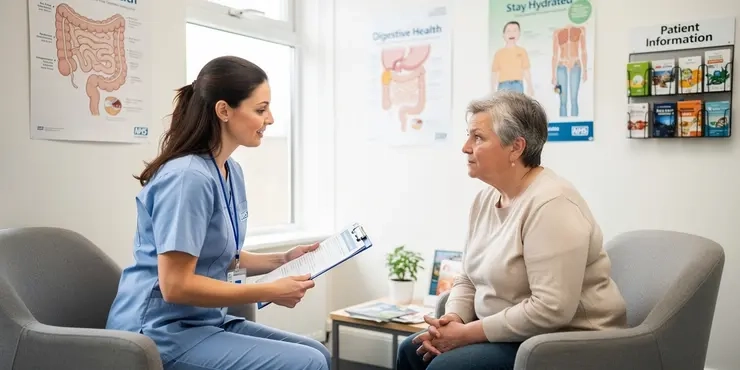
Constipation: Tips for those suffering with constipation
Relevance: 22%
-

Navigating the UK Cost of Living Crisis: Tips for Families
Relevance: 22%
-
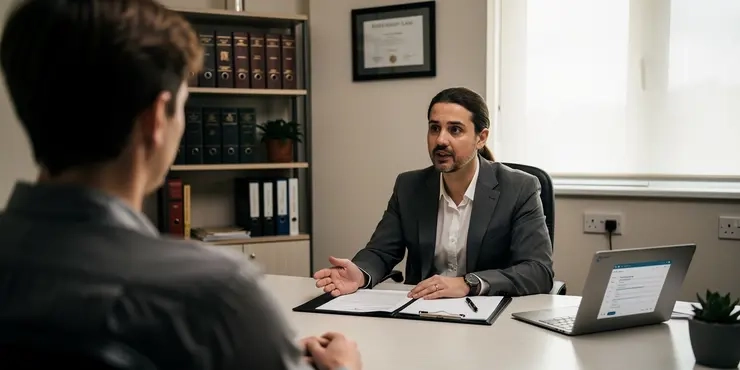
I'm Getting a Divorce | Tips From a Divorce Lawyer
Relevance: 20%
-
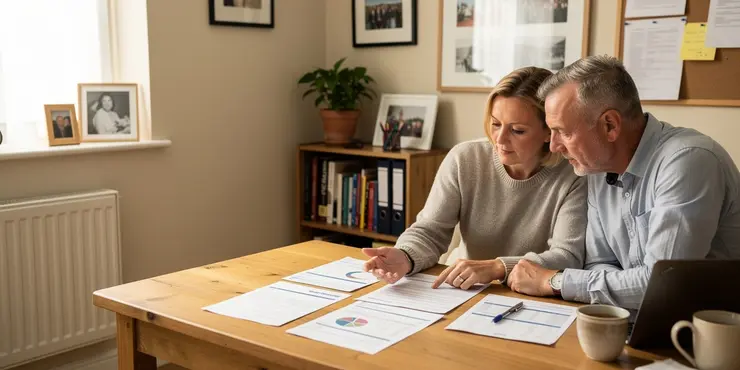
Uk Buy to Let for Older Clients - Mortgage Options Tips and Criteria
Relevance: 18%
-
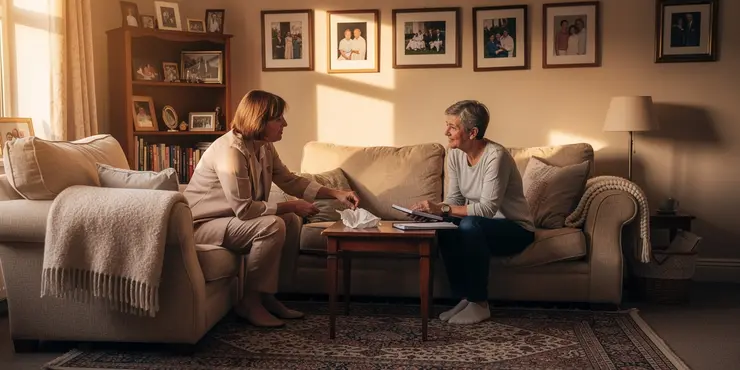
Planning Your Funeral in Advance? | Expert Tips from Celebrants
Relevance: 18%
-
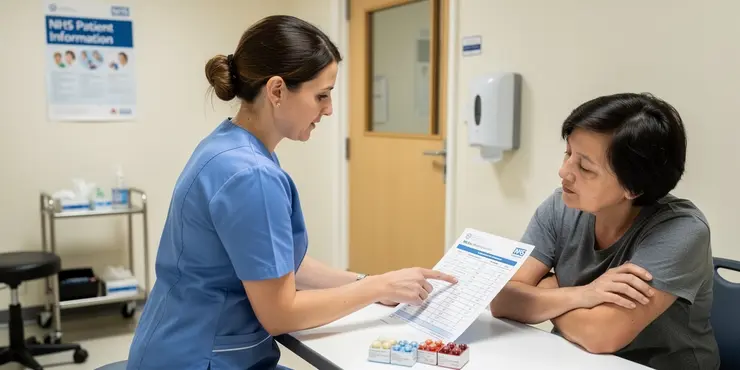
What are some tips for reducing screen time to improve sleep?
Relevance: 18%
-

Bridging Finance Dangers - Tips on common problems, risks and lending rules in the UK
Relevance: 16%
-
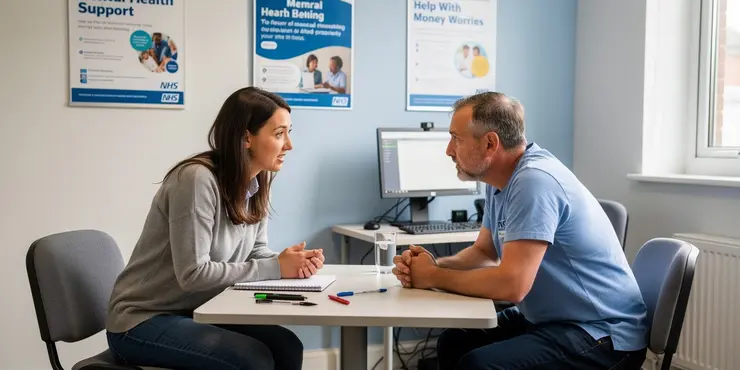
Essential Tips for Mental Health and Well-Being Amidst Rising Living Costs
Relevance: 16%
-
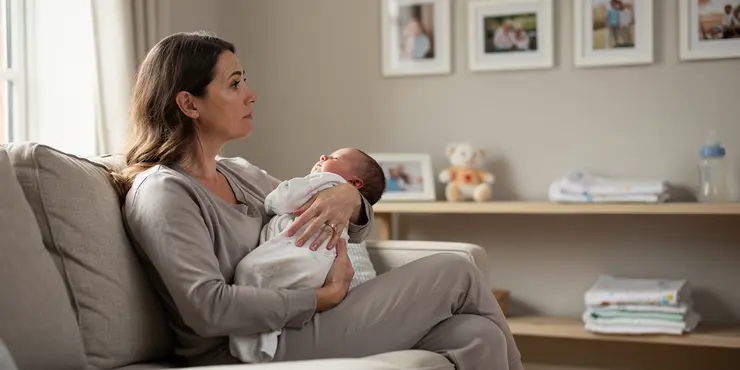
How do I know if I have postnatal depression? | NHS
Relevance: 15%
-
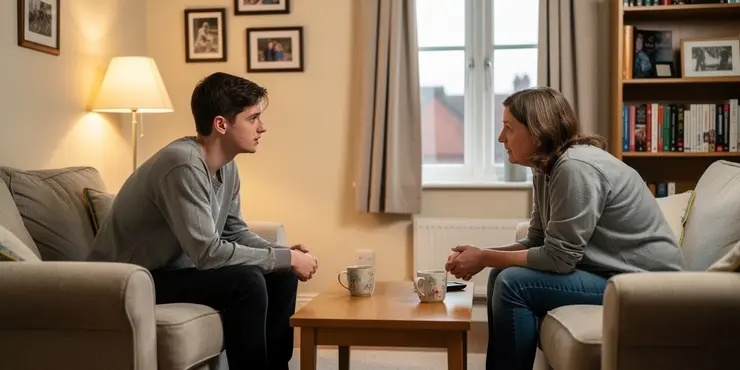
Stammering: How to Help
Relevance: 13%
-
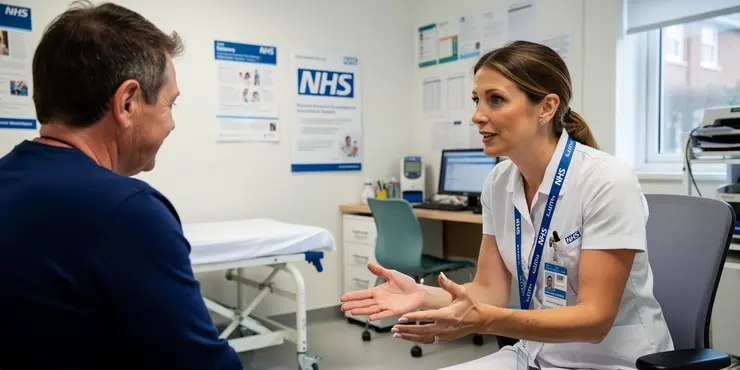
Treating anxiety and depression - www.slam.nhs.uk
Relevance: 13%
-
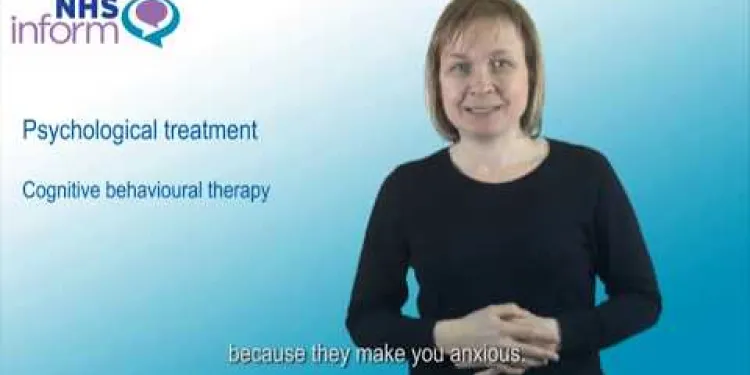
Treating generalised anxiety disorder (GAD)
Relevance: 13%
-
How does sleep quality relate to menopause symptoms?
Relevance: 11%
-
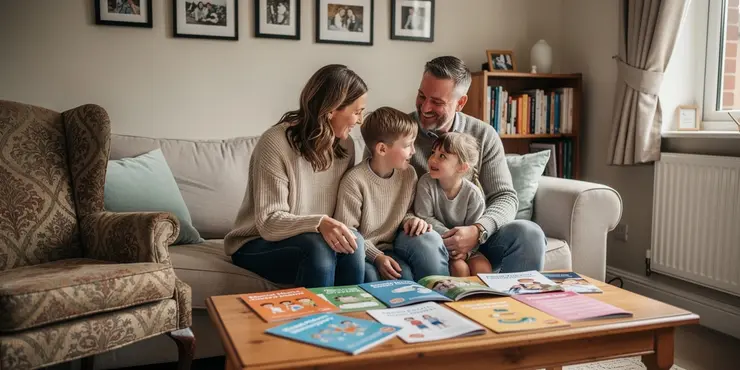
Mental Health Support for Families - Latest Resources and Guidance
Relevance: 11%
-
What should someone do if they suspect they have health-related anxiety?
Relevance: 11%
-
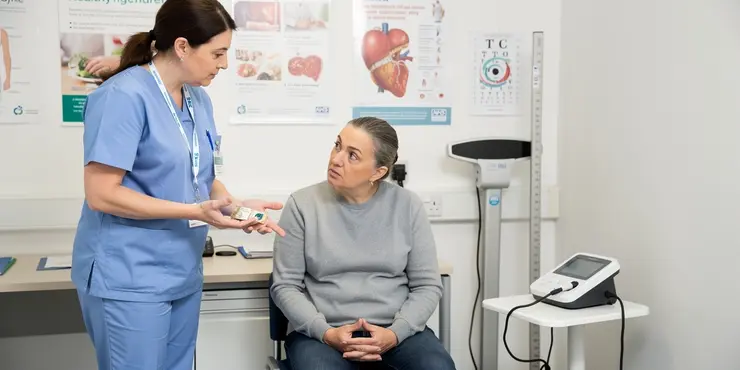
What are the side effects of caffeine pouches?
Relevance: 10%
-
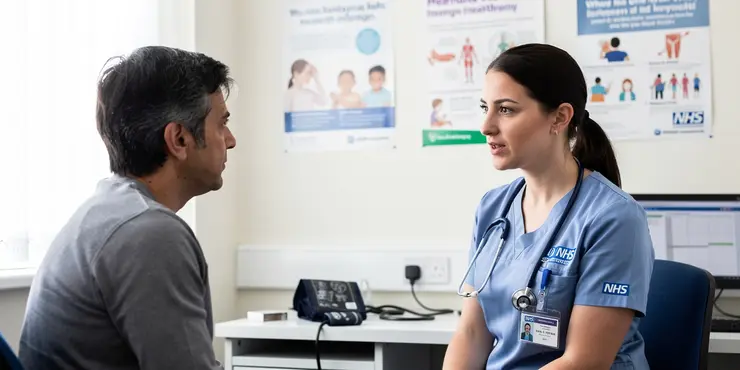
Who should avoid using caffeine pouches?
Relevance: 10%
-
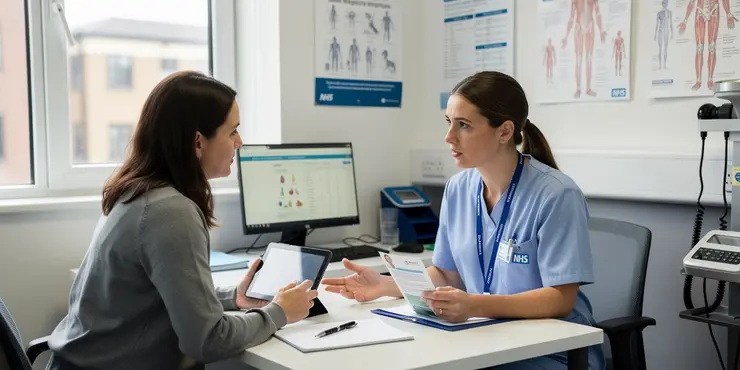
What side effects can I expect from weight loss drugs?
Relevance: 10%
-
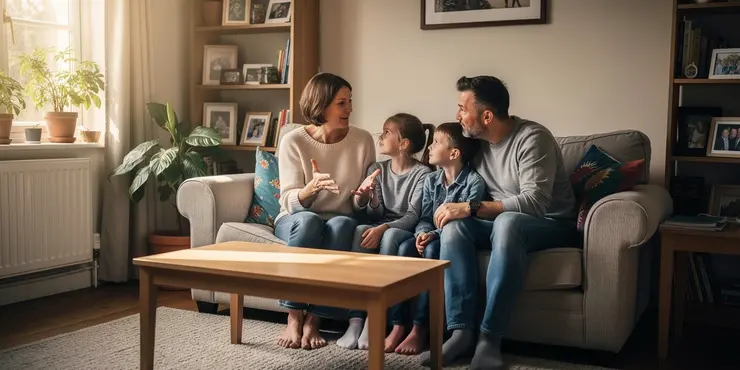
Mental Health Resources for Families
Relevance: 10%
-
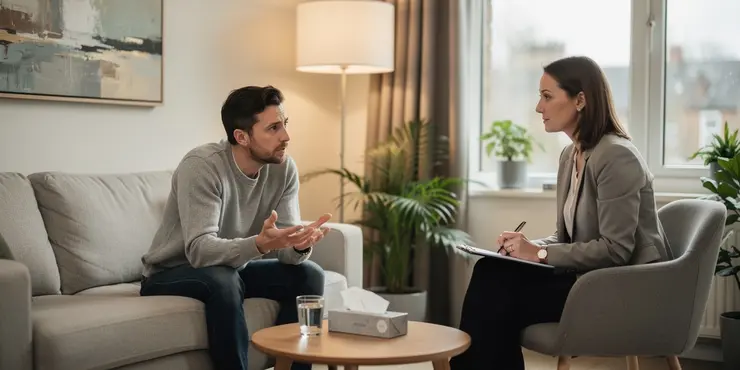
BSL - Treatment of panic disorder
Relevance: 10%
-
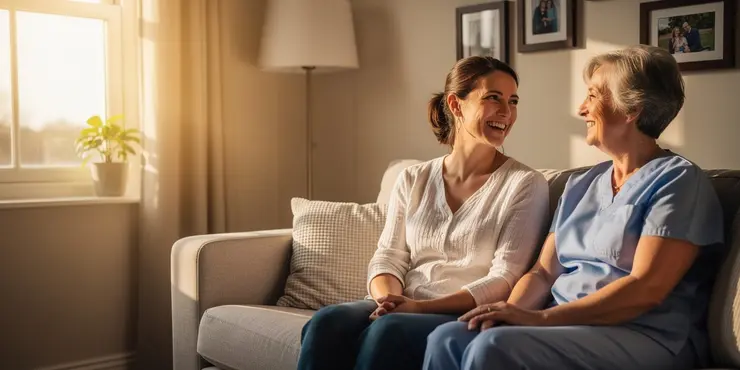
How can support groups benefit carers of Alzheimer's patients?
Relevance: 9%
-
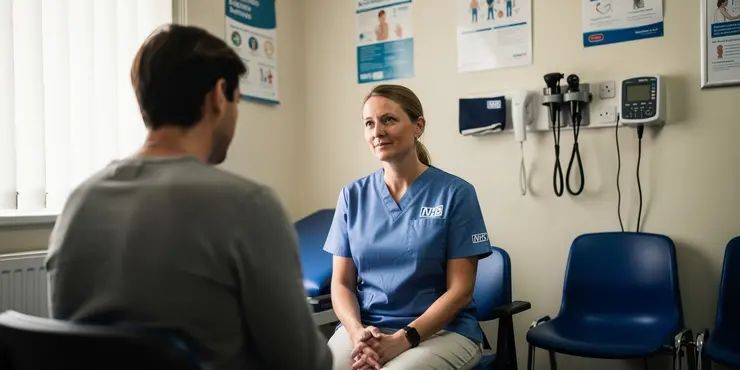
What are common symptoms of a concussion?
Relevance: 9%
-
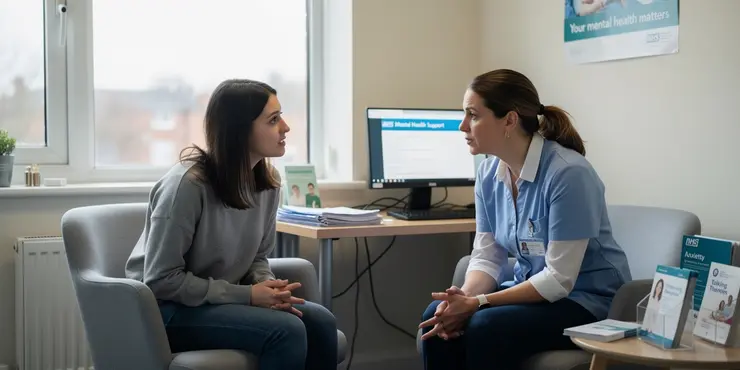
Anxiety | NHS
Relevance: 9%
-
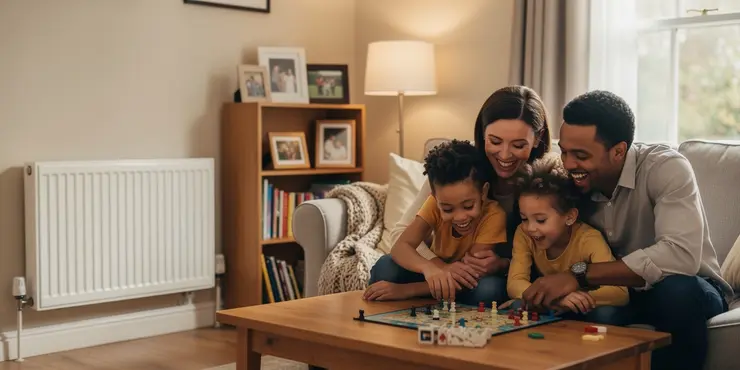
Mental Health Support for Families: Resources and Strategies
Relevance: 9%
Insomnia Self-Help Tips
Understanding Insomnia
Insomnia, a common sleep disorder, affects many in the United Kingdom. It can manifest as difficulty falling asleep, staying asleep, or waking up too early and not being able to go back to sleep. Addressing insomnia effectively involves understanding its causes and implementing self-help strategies.
Maintain a Regular Sleep Schedule
One of the most effective ways to combat insomnia is to maintain a consistent sleep schedule. Go to bed and wake up at the same times every day, even on weekends. This helps regulate your body's internal clock and improves sleep quality over time.
Create a Relaxing Bedtime Routine
Engage in activities that help you unwind before bed. This could include reading a book, taking a warm bath, or practicing relaxation techniques such as deep breathing or meditation. Avoid stimulating activities such as watching TV or using electronic devices, as the blue light emitted can interfere with your sleep.
Optimize Your Sleep Environment
Your sleep environment plays a crucial role in your ability to fall and stay asleep. Ensure your bedroom is dark, quiet, and cool. Consider using earplugs or a white noise machine if noise is an issue, and invest in comfortable bedding to create a conducive environment for rest.
Limit Stimulants and Heavy Meals
Avoid consuming caffeine, nicotine, and alcohol close to bedtime, as these can interfere with your ability to fall asleep. Additionally, avoid large meals or heavy snacks in the evening, as they can cause discomfort and disrupt your sleep.
Stay Active During the Day
Regular physical activity can promote better sleep. Aim for at least 30 minutes of moderate exercise most days of the week. However, try to complete your workout several hours before bedtime to avoid overstimulation.
Manage Stress and Anxiety
Stress and anxiety are common contributors to insomnia. Implement stress-reducing practices such as mindfulness, yoga, or talking to a friend or therapist. Keeping a journal to express thoughts and feelings can also help alleviate stress before bedtime.
Avoid Napping
While napping can be tempting, it can interfere with your ability to fall asleep at night. If you feel extremely tired, limit naps to 20-30 minutes and take them earlier in the afternoon to minimize disruption to your nighttime sleep schedule.
When to Seek Professional Help
If your insomnia persists despite trying self-help strategies, it may be time to seek professional assistance. Consult your GP or a sleep specialist to discuss further options, which may include cognitive-behavioural therapy for insomnia (CBT-I) or other treatments.
By incorporating these self-help tips into your daily routine, you can improve your sleep quality and overall well-being.
Tips to Help You Sleep Better
What is Insomnia?
Insomnia is when you have trouble sleeping. Many people in the United Kingdom have it. You might find it hard to fall asleep, stay asleep, or you might wake up too early. To help with insomnia, it's good to know what causes it and find ways to help yourself.
Keep a Regular Sleep Schedule
Go to bed and wake up at the same time every day. Do this even on weekends. This helps your body know when to sleep and can make your sleep better.
Have a Calm Bedtime Routine
Do things that help you relax before sleeping. You can read a book, take a warm bath, or do deep breathing. Try not to watch TV or use phones and tablets as they can keep you awake.
Make Your Bedroom Sleep-Friendly
Your bedroom should help you sleep well. Keep it dark, quiet, and cool. If noises bother you, try earplugs or a white noise machine. Make sure your bed is comfortable too.
Avoid Caffeine and Heavy Meals
Don't have drinks like coffee or tea before bed. Also, avoid smoking or drinking alcohol late. Try not to eat big meals at night as these can keep you awake.
Exercise During the Day
Try to move your body every day. It can help you sleep better. Aim to exercise for 30 minutes most days, but not too close to bedtime.
Handle Stress and Worry
Feeling stressed or worried can stop you from sleeping. Try relaxing activities like mindfulness or talking to someone. Writing down your thoughts in a journal can also help you feel better.
Try Not to Nap
Napping can make it harder to sleep at night. If you need to nap, keep it short, about 20-30 minutes, and do it early in the day.
When to Get Help
If you still can't sleep after trying these tips, talk to a doctor. They can help you with other treatments or therapies.
By using these tips, you can sleep better and feel better too.
Frequently Asked Questions
What is insomnia?
Insomnia is a common sleep disorder where individuals have difficulty falling asleep, staying asleep, or waking up too early and not being able to go back to sleep.
What are some common causes of insomnia?
Insomnia can be caused by stress, anxiety, depression, poor sleep habits, certain medications, or other health conditions.
How can I improve my sleep hygiene to help with insomnia?
Improving sleep hygiene includes maintaining a regular sleep schedule, creating a comfortable sleep environment, avoiding caffeine and alcohol before bed, and limiting screen time in the evening.
Are there any relaxation techniques I can use to help with insomnia?
Yes, relaxation techniques such as deep breathing exercises, progressive muscle relaxation, and meditation can help calm your mind and prepare your body for sleep.
Does exercise help with insomnia?
Regular physical activity can help improve sleep quality. Aim for at least 30 minutes of moderate exercise on most days, but try to avoid vigorous exercise close to bedtime.
How can I manage stress to improve my sleep?
Managing stress through techniques such as mindfulness, cognitive behavioural therapy, and stress management workshops can help reduce anxiety and promote better sleep.
Should I use sleep aids or medication for insomnia?
It's best to consult with a healthcare professional before using sleep aids or medication for insomnia, as they can provide guidance on safe and effective treatments based on your individual needs.
How important is a bedtime routine for managing insomnia?
Establishing a consistent bedtime routine can signal to your body that it's time to wind down and prepare for sleep, making it easier to fall asleep and stay asleep.
Can dietary changes help with insomnia?
Avoiding heavy meals and caffeine close to bedtime, and incorporating foods that promote sleep, such as those high in tryptophan, magnesium, and melatonin, can help improve sleep.
How dark should my bedroom be for optimal sleep?
Your bedroom should be as dark as possible to promote the production of melatonin, the sleep hormone. Consider using blackout curtains or an eye mask to block out light.
Is it normal to wake up in the middle of the night?
It is normal to wake up briefly during the night, but you should be able to fall back asleep quickly. If you find yourself lying awake for long periods, it may be a sign of insomnia.
Should I avoid naps if I have insomnia?
If you have insomnia, it's best to avoid naps or keep them short (20-30 minutes) and earlier in the day to avoid disrupting your nighttime sleep.
Can technology affect my sleep?
Yes, exposure to blue light from screens can interfere with the production of melatonin. Try to limit screen time at least an hour before bed and use night mode settings on devices.
How can cognitive behavioural therapy (CBT) help with insomnia?
CBT for insomnia helps identify and change negative thoughts and behaviours that contribute to sleep problems, teaching strategies to improve sleep patterns.
When should I seek professional help for insomnia?
If you've tried self-help strategies and still struggle with sleep, or if insomnia affects your daytime functioning, consult a healthcare professional for further assessment and treatment.
What is insomnia?
Insomnia means you have trouble sleeping. It can be hard to fall asleep, or you might wake up a lot during the night.
Here are some tips if you have trouble sleeping:
- Go to bed at the same time every night.
- Make your bedroom dark and quiet.
- Try relaxing by reading or listening to calming music.
If you still can't sleep, talk to a grown-up or a doctor. They can help you feel better.
Some people have trouble sleeping. This is called insomnia. It can be hard to fall asleep, stay asleep, or they might wake up too early and can't sleep again.
Why can't people sleep well sometimes?
Having trouble sleeping can happen if you are worried, sad, or feeling stressed. It can also happen if you don't have good sleeping habits, take certain medicines, or if you have other health problems.
How can I sleep better if I have trouble sleeping?
Here are some tips to help you sleep well:
- Go to bed at the same time every night and wake up at the same time every morning.
- Make your bedroom quiet, dark, and cool.
- Avoid screens like TVs, phones, or tablets before bed.
- Do relaxing activities before bedtime, like reading a book or taking a warm bath.
- Avoid drinks with caffeine, like soda and coffee, in the afternoon and evening.
Try calm music or a sleep app to help you relax and fall asleep.
To help you sleep better, do these things:
- Go to bed at the same time every night.
- Make your bedroom cozy and comfy.
- Don't drink coffee or alcohol before bedtime.
- Turn off screens like phones and tablets in the evening.
You can also try using a night light or have a calm bedtime routine, like reading a short story.
Can I use any ways to help me sleep better?
Yes, there are ways to help you feel calm and ready for sleep. You can try taking deep breaths, relaxing your muscles step by step, or meditating.
Can exercise help you sleep better?
Do you have trouble sleeping at night? This is called insomnia. Exercise can help! Here is how:
- Exercise helps tire out your body, so you feel sleepy at night.
- It makes you feel good and less worried, which helps you relax.
- Try doing some exercise during the day, like walking or playing a sport.
If you find reading hard, ask someone to help you read this. You can also use tools that read aloud text for you.
Doing exercise regularly helps you sleep better. Try to do 30 minutes of exercise most days. But don't do hard exercise right before bedtime.
How can I feel less worried and sleep better?
Feeling worried can make it hard to sleep. Here are some ways to help:
- Try to go to bed at the same time every night.
- Before bed, take deep breaths to feel calm. Breathe in slowly and breathe out slowly.
- Read a nice story or listen to calm music before you sleep.
- Make your bedroom quiet and dark. This helps you relax.
- Ask someone you trust to help if you feel very worried.
There are things you can use to help, like calming apps, sleep stories, or a night light.
There are ways to help when you feel stressed. Doing things like being mindful, talking to someone about your thoughts, and going to classes about stress can make you feel less worried and help you sleep better.
Is it okay to use medicine or sleep aids to help me sleep?
If you find it hard to sleep, you might think about using medicine or other things to help. Here are some things to think about:
- Always talk to a doctor before using medicine to help you sleep.
- Sometimes, sleep aids can help for a short time.
- There are also other ways to help you sleep better, like relaxing before bed, sticking to a bedtime routine, or making your room comfy.
- Using tools like a noise machine or soft music can also help you relax.
- Healthy habits like not having caffeine or screens before bed are good.
Remember, it's always important to make safe choices and get help from a doctor if you need it.
Talk to a doctor before taking medicine to help you sleep. They can tell you what is safe and what works best for you.
Why is a bedtime routine important to help with trouble sleeping?
Having a bedtime routine can help you sleep better. It is good to do the same relaxing things before you go to bed each night. This can make it easier to fall asleep.
Here are some tips:
- Go to bed at the same time every night.
- Have a warm bath to relax.
- Read a bedtime story or listen to calm music.
- Avoid using screens (like phones or tablets) before bed.
Try using a night light or a favorite stuffed toy to feel safe and cozy.
Having a bedtime routine can help you sleep better. It tells your body it's time to relax and go to sleep. This makes it easier to fall asleep and stay asleep.
Can changing what you eat help you sleep better?
Don't eat big meals or have drinks with caffeine before bed. Eat foods that help you sleep. These foods have things called tryptophan, magnesium, and melatonin in them. Doing this can help you sleep better.
How dark should my bedroom be for the best sleep?
Your bedroom should be very dark when you sleep. Darkness helps your body relax and sleep well.
Here are some tips:
- Turn off all lights.
- Close your curtains or blinds to stop light from outside.
- Try using a sleep mask to cover your eyes if it is still too bright.
Make your bedroom very dark to help you sleep better. Darkness helps your body make something called melatonin, which helps you sleep. You can use special curtains that keep the light out or wear an eye mask over your eyes.
Is it okay to wake up in the night?
It is okay to wake up at night.
If you wake up, try these steps:
- Breathe slowly and calmly.
- Think of happy thoughts.
- Listen to soft music.
It's normal to wake up a little during the night. But, you should fall asleep again quickly. If you stay awake for a long time, it could mean you have trouble sleeping, called insomnia.
Is it okay to nap if I can't sleep at night?
If you have trouble sleeping at night, called insomnia, you might wonder if taking naps during the day is okay. Here are some tips to help you:
- Try to stay awake during the day. This might help you sleep better at night.
- If you really need to nap, keep it short. 20 minutes is a good time.
- Take a nap in the early afternoon. Napping late can make it hard to sleep at night.
These tips are just a start. You can also talk to someone who helps with sleep problems.
If you can't sleep at night, try not to nap during the day. If you need to nap, keep it short, like 20-30 minutes. Also, nap early in the day so it doesn't stop you from sleeping at night.
Can technology change how I sleep?
Using devices like phones, tablets, or computers before bed can make it harder to sleep. This is because the light from screens can confuse your brain and make it think it is still daytime.
Here are some tips to help you sleep better:
- Turn off screens at least one hour before bed.
- Try reading a book or listening to calm music instead.
- Make sure your room is quiet and dark.
If you find it hard to sleep, ask an adult for help.
Yes, looking at screens with blue light can make it hard to get to sleep. Try to stop using screens at least one hour before you go to bed. You can also use night mode on your devices to help.
How can talking therapy help with sleep problems?
Talking therapy is a way to help people who have trouble sleeping. This type of help is called CBT. It can teach you new ways to think and help you sleep better.
Here is how it can help:
- Talk about your sleep worries with a kind person.
- Learn what to do before bed to help you sleep.
- Find relaxing things to help you feel calm.
- Use a diary to track your sleep.
Talking therapy is a good way to help you sleep better.
CBT can help if you can’t sleep. It helps you find out what stops you from sleeping well. Then, it shows you how to change those thoughts and actions. CBT can teach you ways to sleep better.
When should I ask a doctor for help with sleeping problems?
If you often can't sleep well at night or feel very tired during the day, it might be a good idea to talk to a doctor.
Here are some signs that you should ask for help:
- You can't sleep well for a long time.
- You feel very tired during the day, even if you stayed in bed all night.
- You have trouble doing your daily tasks because you are too tired.
You can also try these things:
- Make a calm bedtime routine, like reading a book or listening to music before sleep.
- Try to go to bed and wake up at the same time every day.
- Make your bedroom cozy and quiet.
If you tried to help yourself sleep better, but it does not work, it's a good idea to talk to a doctor. They can help find out why you have trouble sleeping and tell you the best way to fix it. If not sleeping well makes your day hard, a doctor can help you feel better.
Useful Links
This website offers general information and is not a substitute for professional advice.
Always seek guidance from qualified professionals.
If you have any medical concerns or need urgent help, contact a healthcare professional or emergency services immediately.
Some of this content was generated with AI assistance. We’ve done our best to keep it accurate, helpful, and human-friendly.
- Ergsy carfully checks the information in the videos we provide here.
- Videos shown by Youtube after a video has completed, have NOT been reviewed by ERGSY.
- To view, click the arrow in centre of video.
- Most of the videos you find here will have subtitles and/or closed captions available.
- You may need to turn these on, and choose your preferred language.
- Go to the video you'd like to watch.
- If closed captions (CC) are available, settings will be visible on the bottom right of the video player.
- To turn on Captions, click settings .
- To turn off Captions, click settings again.
More Items From Ergsy search
-

BSL - Insomnia self-help tips
Relevance: 100%
-

NHS 24 | Self-help tips for dental pain
Relevance: 51%
-

BSL - Treatments for insomnia
Relevance: 51%
-

BSL - Causes of insomnia
Relevance: 47%
-

BSL - Insomnia introduction
Relevance: 45%
-

Is insomnia a common side effect of weight loss drugs?
Relevance: 39%
-
Are there self-help strategies for managing health-related anxiety?
Relevance: 38%
-

Post-traumatic stress disorder (PTSD) - Self-help guide
Relevance: 36%
-

Talking therapy 'should be offered before pills' for people with insomnia | NHS Behind the Headlines
Relevance: 34%
-

Top 10 Tips for Healthy Eating
Relevance: 26%
-

Top Tips to Help You Get a Good Nights Sleep
Relevance: 26%
-

Prolapse Types and Tips
Relevance: 26%
-

Tips for breathlessness | NHS
Relevance: 25%
-

Dental Health: Tips for All Ages
Relevance: 24%
-

Healthy Family Lifestyle Tips Post-Pandemic
Relevance: 23%
-

Needle phobia - Top tips video
Relevance: 23%
-

Constipation: Tips for those suffering with constipation
Relevance: 22%
-

Navigating the UK Cost of Living Crisis: Tips for Families
Relevance: 22%
-

I'm Getting a Divorce | Tips From a Divorce Lawyer
Relevance: 20%
-

Uk Buy to Let for Older Clients - Mortgage Options Tips and Criteria
Relevance: 18%
-

Planning Your Funeral in Advance? | Expert Tips from Celebrants
Relevance: 18%
-

What are some tips for reducing screen time to improve sleep?
Relevance: 18%
-

Bridging Finance Dangers - Tips on common problems, risks and lending rules in the UK
Relevance: 16%
-

Essential Tips for Mental Health and Well-Being Amidst Rising Living Costs
Relevance: 16%
-

How do I know if I have postnatal depression? | NHS
Relevance: 15%
-

Stammering: How to Help
Relevance: 13%
-

Treating anxiety and depression - www.slam.nhs.uk
Relevance: 13%
-

Treating generalised anxiety disorder (GAD)
Relevance: 13%
-
How does sleep quality relate to menopause symptoms?
Relevance: 11%
-

Mental Health Support for Families - Latest Resources and Guidance
Relevance: 11%
-
What should someone do if they suspect they have health-related anxiety?
Relevance: 11%
-

What are the side effects of caffeine pouches?
Relevance: 10%
-

Who should avoid using caffeine pouches?
Relevance: 10%
-

What side effects can I expect from weight loss drugs?
Relevance: 10%
-

Mental Health Resources for Families
Relevance: 10%
-

BSL - Treatment of panic disorder
Relevance: 10%
-

How can support groups benefit carers of Alzheimer's patients?
Relevance: 9%
-

What are common symptoms of a concussion?
Relevance: 9%
-

Anxiety | NHS
Relevance: 9%
-

Mental Health Support for Families: Resources and Strategies
Relevance: 9%


